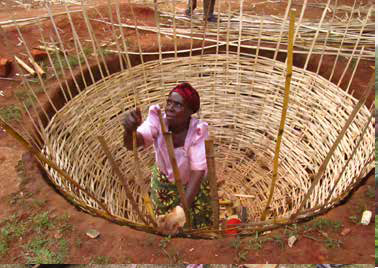
Description of the project: WECF and local partners facilitate technical trainings to integrate renewable energy solutions, such as briquette production, solar pumps, photovoltaic and biogas digesters, into the activities of agricultural cooperatives. Benefiting from improved, sustainable processing of agricultural products and diversified activities, cooperatives generate more jobs and higher incomes for their members. They also become energy hubs, providing access to clean and affordable energy to their members and the wider community. They provide technical and financial advice on sustainable energy technologies suitable for households, public entities and businesses.
Climate impact: With a rural electrification rate of 4%, only 0.4% of the population in Uganda has access to modern cooking technologies. Almost 86% households rely on firewood for cooking, leading to high CO2 emissions and strong deforestation (losing 1% of natural forest resources every year). The project generates affordable clean energy for rural households, creating social and economic benefits for women and men, while reducing CO2 emissions and the dependence on fossil fuels.
Gender impact: Gender responsive trainings on energy technologies and management are conducted to create equal ownership of business activities and installed technologies. For each technology, two cooperative members, female and male, are elected to be in charge of the technical and management issues. Cooperative members are responsible for raising awareness within their communities, particularly within women’s saving groups, providing advice responding to their needs and capacities.
Scalability / replicability: Existing community structures, such as saving groups and cooperatives, create possibilities for joint investments in energy technologies and act as multipliers. The production and use of decentralized solar energy and the recycling of organic waste promote local value chains and climate-friendly, sustainable economies. The solutions are feasible, replicable and inclusive. They transform the agricultural and energy sector, reduce poverty, create income, improve health and the communities’ resilience.